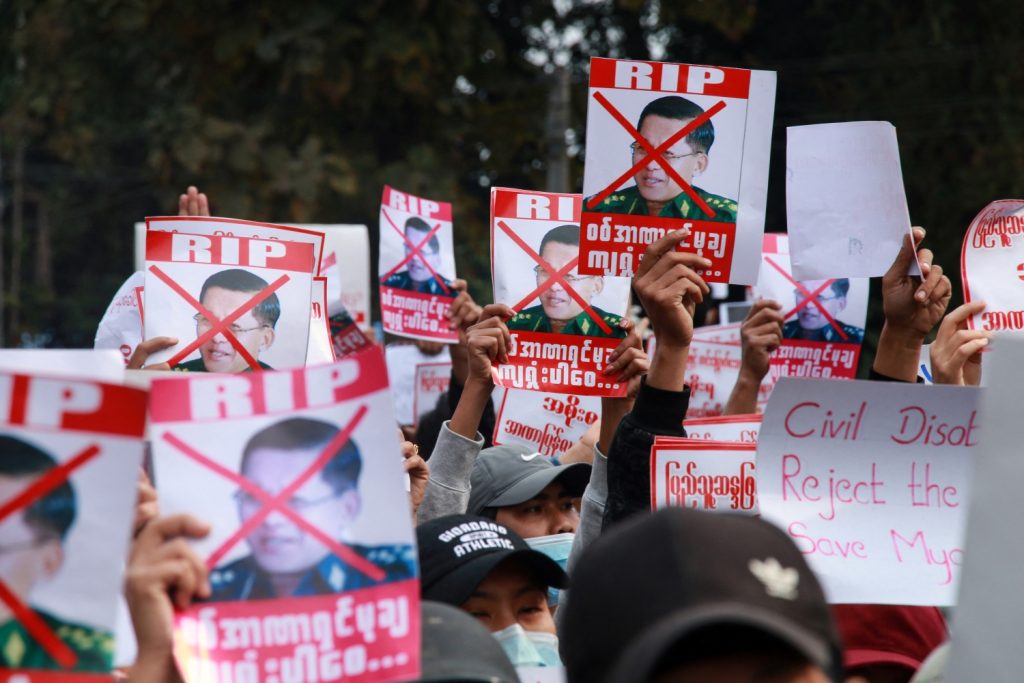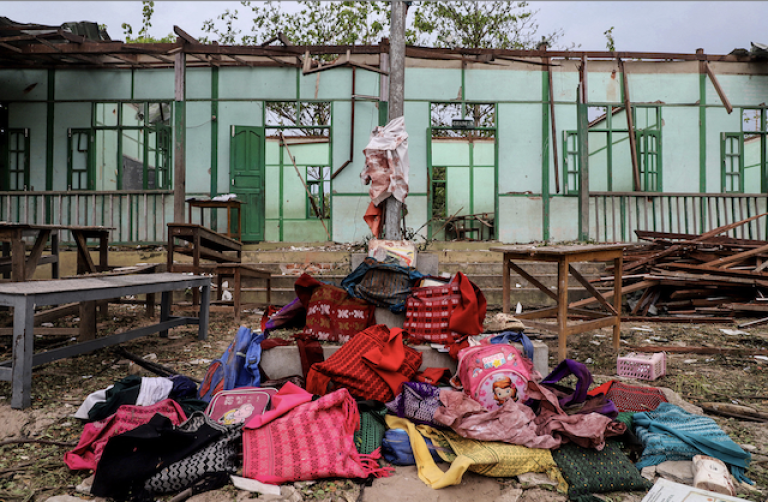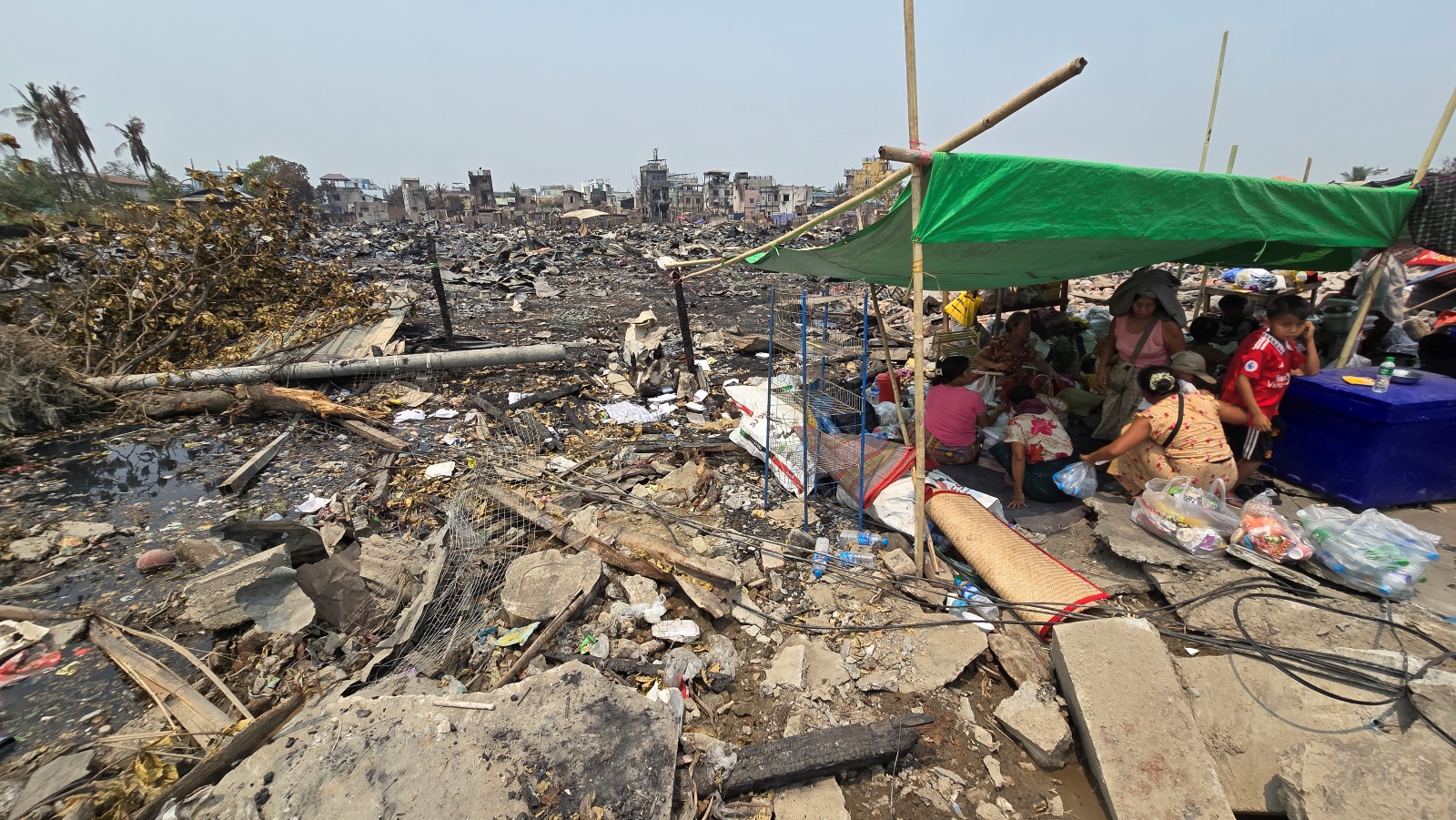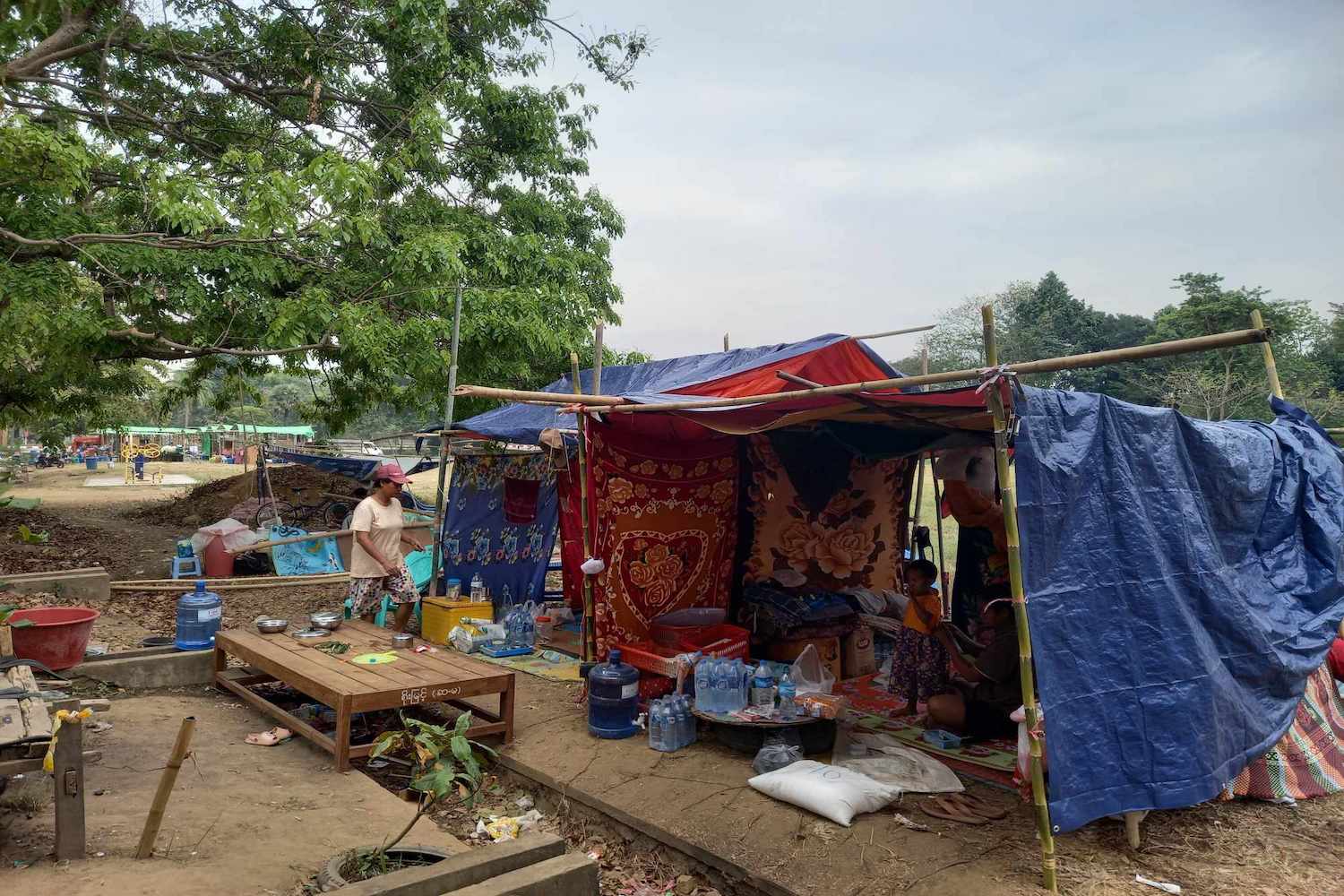The military’s attempts to co-opt ethnic leaders have had only patchy success, but the NLD’s troubled relationship with ethnic parties has hindered a broader alliance against the coup.
By LAWI WENG | FRONTIER
The new military junta, facing massive resistance on the streets of major towns and in the government offices it now controls, is hoping to shore up its power by allying with ethnic minority leaders. The regime is banking on these leaders’ disillusionment with the ousted NLD government, which was regularly accused of disregarding minority grievances and failing to advance the peace process.
However, this strategy has so far met with only patchy success. Since the February 1 coup d’état, most ethnic parties have rejected the military’s offers of seats on its ruling administrative council or other government berths. Meanwhile, those who have accepted positions are facing revolts – either from within their own parties or their wider ethnic communities.
Some of the successful appointments have been relatively inconsequential. Although the Kayin People’s Party chair Saw Tun Aung Myint agreed to become the new Union-level ethnic affairs minister, and failed KPP electoral candidate Mahn Nyein Maung accepted a position on the national State Administration Council, the party won only one seat in the November 8 election, in the Kayin State Hluttaw. Although Mahn Nyein Maung is a former central executive member of the Karen National Union, the armed group has since distanced itself from the former revolutionary and condemned the coup.
Other nominations seem to have directly backfired. When Kayah State Democratic Party vice chair Saw Daniel joined the SAC, his party issued a statement on February 4 condemning the appointment and saying he was no longer a party member.
Yet, some junta appointments will have significant implications for ethnic politics. The most powerful party to have chosen collaboration is the Arakan National Party, which won the largest number of seats in Rakhine State in the November election – even though voting was cancelled, ostensibly for security reasons, in most of the party’s strongholds, and despite two factions having broken away to form separate Rakhine parties.
ANP leaders have defended party spokesperson and former vice chair Daw Aye Nu Sein’s acceptance on February 3 of a seat on the national SAC, arguing that NLD rule merely represented another form of Bamar-centric “dictatorship”. However, nearly 50 Rakhine civil society groups condemned the move, youth members of the ANP quit the party in protest, and some more established party members expressed their dissatisfaction on social media. ANP’s central executive committee met on February 12-14 to discuss the matter but did not publish any new decisions. (Read Frontier’s recent story for more on the controversy.)
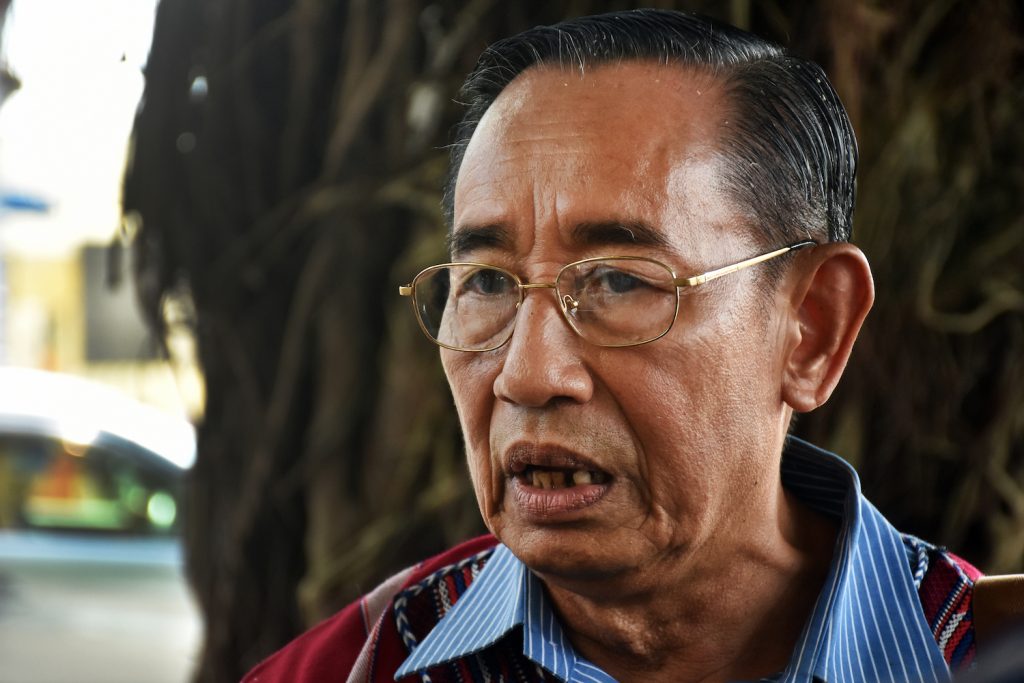
Another relatively successful ethnic party to have agreed to work with the junta is the Mon Unity Party, which won a total of 12 seats in the November election, mostly in Mon State, making it the fourth largest party nationally. However, the decision revealed a divided party: of the MUP’s 28 central executive committee members, 18 supported joining the military government and the rest were opposed during a CEC meeting on February 8.
On February 21, a junta statement revealed that MUP joint-secretary Nai Leyi Tama had been appointed to the Mon State SAC. Leyi Tama, who is also the party’s spokesperson and won the Mon State Hluttaw seat of Thanbyuzayat-2 in November, told Frontier that the party’s decision to collaborate with the junta was aimed at furthering the collective right of the Mon people for greater autonomy.
He added that past experience had taught them that the Mon had little to gain, and much to lose, from allying with the NLD and the Bamar-led democracy struggle, and their status as a minority group made them especially vulnerable to reprisals.
He said Mon people had sacrificed their lives when they joined protests in 1988 and 2007 “but got nothing” for their efforts. “We are worried that our people might become victims of bloodshed again, so we have chosen this road,” he said, adding that cooperating with the junta “offers a way to get our rights”.
Several in the MUP leadership are known to favour an accommodating line with the Tatmadaw. It’s an attitude that has disappointed many of the party’s own supporters in the Mon community amid the nationwide protests against the coup, which have also swept major towns in Mon State.
They include Nai Ko Thu, a human rights activist and NLD supporter, who praised the MUP executive members who opposed the decision. He said they had “refused to drink bitter rainwater”, referencing a folktale in which an astrologer warns a community not to drink bitter rainwater because it will turn them mad. When the people drink the water anyway, the astrologer is left alone as the last sane person, so eventually drinks the water himself.
But others in the community are openly supportive. Respected Mon elder Nai Tin told Frontier he had personally advised the MUP to work with the Tatmadaw.
“We are a minority,” said Nai Tin, who served for many years with the New Mon State Party, an ethnic armed group that joined the Nationwide Ceasefire Agreement in 2018. “If we are in a weak position, other people will attack us.”
Leyi Tama said that, for the Mon, the NLD and the Tatmadaw are ultimately the same, because both are dominated by the Bamar, or Burman, majority. “The NLD government was a democratic dictatorship. Both the NLD and the military have pursued a Burmanisation policy. The military holds power now in what in our opinion is a struggle between the Bamar,” he said.
Despite the disagreement over this stance, the MUP has so far suffered few resignations, and the party has managed to contain an internal revolt without changing course.
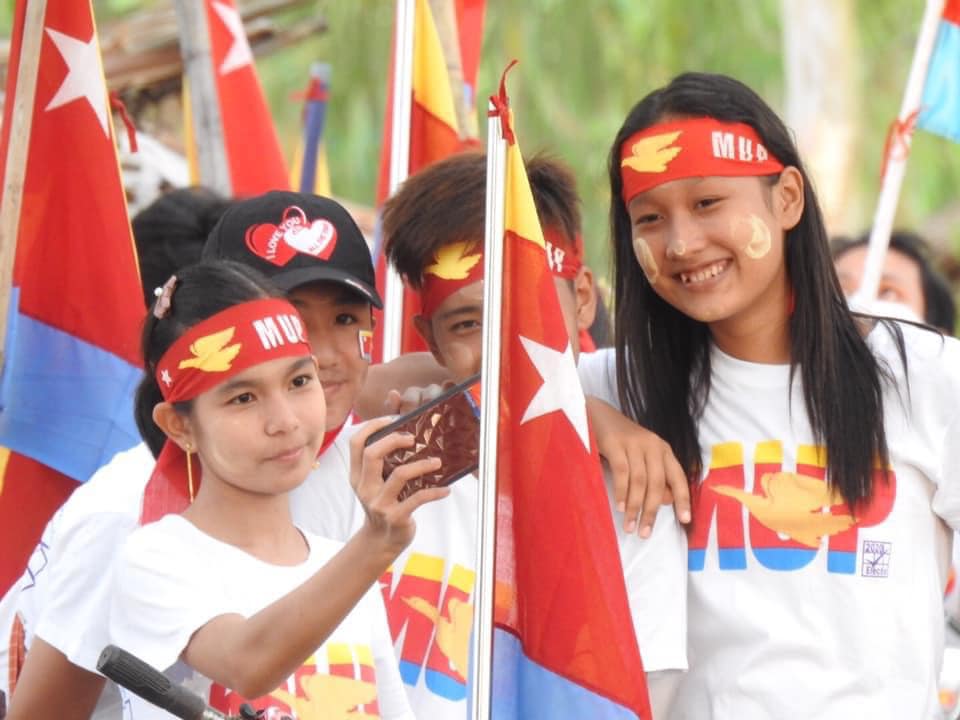
‘Better to remain silent’
Ethnic nationalities had high expectations when the NLD took office in early 2016, but many among them were disappointed to discover they could not rely on the party to advance their rights and interests.
The NLD government sparked local resentment by erecting statues of party leader Daw Aung San Suu Kyi’s father, Bogyoke Aung San, in Kachin, Chin and Kayah states, and by naming a bridge in Mon after the independence hero. It also jailed Karenni youth activists for campaigning against the erection of an Aung San statue in the Kayah capital, Loikaw.
The NLD’s strong performance in most ethnic states in the November election – winning a majority of elected seats in all but the Shan and Rakhine state hluttaws – suggests the party’s appeal still extends across ethnic lines. However, Myanmar’s winner-takes-all electoral system creates strong incentives for tactical voting; a landslide NLD victory is seen as the only reliable means of preventing a pro-military government from forming with the aid of the 25 percent bloc of Tatmadaw representatives in the national parliament.
This electoral dynamic only heightened the resentment that many ethnic parties felt towards the NLD, and a post-election round of consultations on federal reform initiated by the NLD with ethnic parties backfired in several cases. Planned meetings between the NLD delegation with the MUP in Mon State, and the Kayah State Democratic Party and Kayan National Party in Kayah State, fell through because the ethnic parties refused to meet at NLD offices, arguing that this made them look subordinate to the NLD.
The generally poor state of relations between the NLD and ethnic parties has meant that even parties that have refused offers to join the junta have refrained from loudly condemning the coup or throwing their full weight behind efforts to resist military rule. While many towns in ethnic states have held anti-coup protests with tens of thousands of participants, ethnic parties do not appear to have played an important part in them.
Kayan National Party chair Khun Bedu told Frontier that his party had been offered a position on the Shan State SAC, but the party refused. The KNP, which represents the Kayan people of southern Shan and neighbouring Kayah State, won only one seat in the November election – the Kayan ethnic affairs minister position in the Shan government.
However, despite refusing the junta’s offer, the party has not publicly condemned the coup. Khun Bedu said this was for two reasons.
The first was because after forming government in 2016, the NLD did not treat ethnic nationalities with respect or consider their needs. “We have suffered because of both sides [the Tatmadaw and the NLD] and we feel it is better to remain silent and not become involved,” he said.
The second reason was speculation over whether the Tatmadaw’s power grab would result in a new constitution with greater ethnic autonomy. While there is little evidence so far to support this – the military has instead been at pains to present its takeover as constitutional, and has stressed continuity in government policy – the junta may take the opportunity to enact reforms that would weaken the NLD’s future electoral gains and governing authority, in ways that might indirectly benefit ethnic parties.
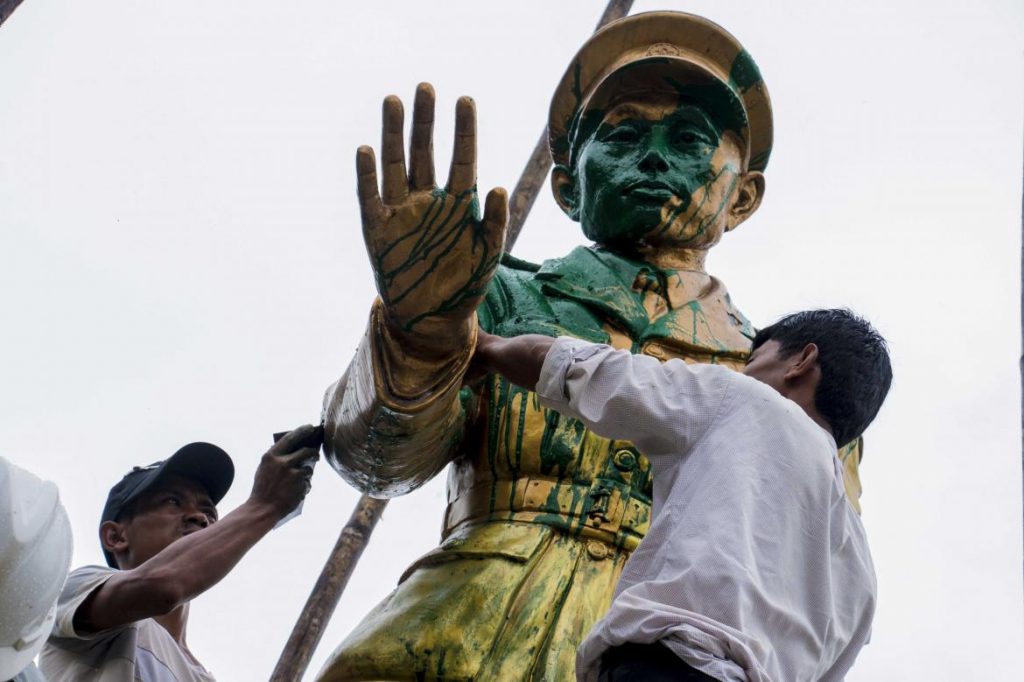
The KNP joined other ethnic parties, including the MUP, Kachin State People’s Party, Chin National League for Democracy and Karen National Democratic Party, in expressing their unhappiness at the coup in a statement released on February 5. However, the statement stopped short of condemning the takoever, and instead asked for the Tatmadaw and NLD to “negotiate” and enter a “dialogue” along with ethnic parties to resolve the crisis.
Gum Grawng Awng Hkam, vice chairman-2 of the KSPP, said all ethnic people “share the same feeling” that they had been badly treated by the NLD. Although his party, which won four seats in the November election, had rejected a role in the junta, ethnic parties like his were reluctant to come to the NLD’s aid or take a leading role in protests, he told Frontier.
He said the ousted ruling party had ignored the plight of more than 100,000 Kachin civilians displaced by armed conflict, and this made “the Kachin have ill feeling towards the NLD”. (Although this statement is difficult to square with the NLD winning the largest share of the popular vote in Kachin State in November – 42 percent to the KSPP’s 13pc.)
Gum Grawng Awng Hkam also said the NLD had used its parliamentary majority in March last year to vote down an opposition-sponsored amendment to the constitution that would have allowed chief ministers of states to be elected by state assemblies rather than appointed from Nay Pyi Taw by the president.
“We know some articles are difficult to amend, but this one [261(b)] could have been amended. Yet, they did not do it,” he said, referring to the fact that the military, which can veto changes to the constitution, had backed the reform.
Another sore point was the NLD-dominated parliament’s adoption in May last year of an amendment to election by-laws to reduce the residency qualification for voters from six months to 90 days. Ethnic parties opposed the change on the grounds that it would favour the NLD because of the large number of Bamar migrant workers in the ethnic states.
Gum Grawng Awng Hkam said this was example of how, in some respects, the NLD government had been “worse” for ethnic rights than its military-backed predecessor.
Claiming that both “the military and the NLD have oppressed our ethnic rights”, he said that regardless of which is in charge, peace in Myanmar depends on ethnic people being represented in political dialogue. “If the Tatmadaw and NLD do what they want without negotiating with us ethnic people, our country will not have a good future,” he said.


